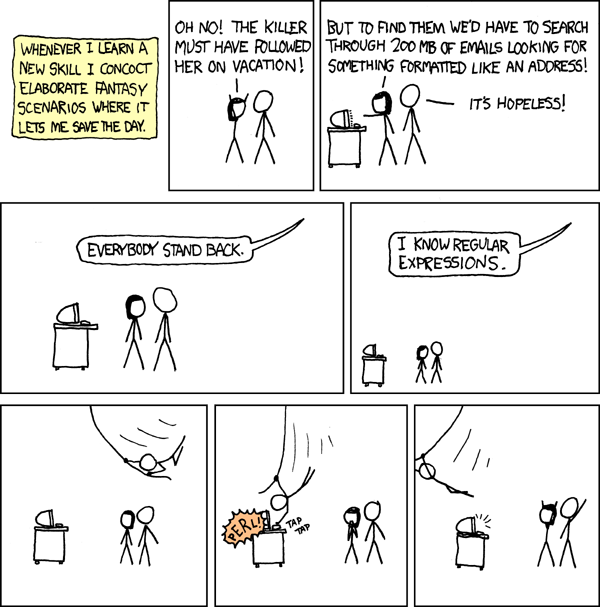this post was submitted on 01 Feb 2024
316 points (98.5% liked)
Comics
518 readers
1 users here now
A community for sharing comics related to programming
Icon base by Delapouite under CC BY 3.0 with modifications to add a gradient
founded 1 year ago
MODERATORS
you are viewing a single comment's thread
view the rest of the comments
view the rest of the comments

Oh no
Who's gonna tell them? I'd do it but I'm still busy parsing HTML with regex.... it's working any minute now!
What am I missing? I typically used it as a sanity check and would vet the changes. Never as a one-click modify. Or is there something else I should know about?
This short article has some good examples at the top: https://sigparser.com/developers/email-parsing/regex-validate-email-address/
Basically, you can very easily make a regex to match 99% of email addresses, but technically an email could be something like "!@[124.35.6.72]"
Ah, yeah. It was never meant to be a be all and all. Just something to clean up the complete trash before I started proofreading. Besides, these were emails the customer provided and could easily be changed afterwords. Their fault if we get bad emails in the list ¯\_(ツ)_/¯
This is the way
You're completely correct. In practice, it's usually good enough to just check for ".+@.+" or ".+@.+\..+". Why? It's broad enough to allow almost everything and it rejects the most obvious typos. And in the end, the final verification would be to send an email there which contains a link, that one has to click to finalize the signup/change. Even if you had a regex that could filter every possible adress that's possible according to the standard, you still wouldn't know whether it really exists.
I wrote a regex that matches 100% of email addresses and had no problems using it. It's ".+@.+"
Meme aside that's what I'd use tbh. Or the ultimate email validation: just sending the signup email and if they typed an invalid email it won't send